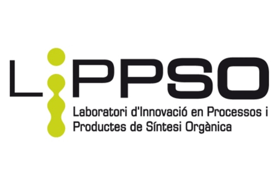SmartPEPXYL
New peptide based-compounds as smart plant protection products against plant diseases caused by Xylella fastidiosa (SmartPEXYL)
The project SmartPEPXYL is focused on the delivery of new peptide based-compounds as smart plant protection products against plant diseases caused by Xylella fastidiosa (Xf). This pathogen is a xylem-limited bacterium, transmitted via insect vectors that causes a variety of diseases in important crops, including grapevine, almonds and olive trees, with huge economic impact on agriculture.
This project is carried out in collaboration within the UdG with the Laboratory of Innovation in Processes and Products of Organic Synthesis (LIPPSO), who has participated in previous coordinated projects in the last years.
The goal of the proposal is to achieve a productive agricultural activity by reducing phytosanitary problems through the delivery of new sustainable peptide-based compounds to protect crops from Xf. Specifically, these compounds are promising candidates to combat this bacterium because they meet regulatory requirements for low environmental impact fulfilling consumer demand for safe and reliable plant products. Therefore, the project is aligned with the principles of the European Directive (Directive 2009/128/EC) and the strategy of the European Green Deal to reduce the footprint and minimize the environmental and health impact of pesticides.
In this project we aim to identify new peptide-based compounds targeted to key growth or virulence factors of Xf and by elucidating the mechanism of action of the most promising peptides.
To attain this purpose, we envisage two classes of based peptides compounds:
- The first class of compounds envisaged in this project as potential agents to control Xf are antisense molecules, Peptide Nucleic Acids (PNAs), which target the RNA. Antisense compounds bind to RNA and, therefore, reduce the expression levels of proteins responsible for pathogenicity and virulence.
- The second class of compounds that will be developed in this project are target oriented peptides (TOPs), which target membranes, biofilm, extracellular structures or targets involved in plant defense or more specifically directed to bind conserved domains of proteins being virulence factors of Xf.
Once the most promising peptide-based compounds have been identified, further studies must be performed to elucidate the main mechanism of action.
The three starting HYPOTHESIS of the project are:
- Peptide nucleic acids (PNAs) and target oriented peptides (TOPs) could provide a novel type of compounds to treat host plants of Xf and reduce its infection process and disease development
- Selected PNAs and TOPs could be optimized to improve their biological profile through their conjugation or combination with other peptides or non-peptidic compounds, such as Cell Penetrating Peptides (CPPs), polyphenols or ionic liquids, or by incorporating structural modifications.
- Elucidating the key targets and processes of the selected lead peptides could enhance the rational design of new and improved sequences and reveal the basis for effective treatment application in disease management.
The final goal of the project aims to develop new smart compounds based on peptide nucleic acids (PNAs) and target oriented peptides (TOPs) to either selectively kill Xf, disrupt its pathogenicity, or induce plant defenses, in order to prevent the infection or cure infected plants.
This is a four-year’s project started in 2023 and will end in 2027.





Ajuts a Projectes de Generació de Coneixement, I a actuacions per la formación de personal investigador predoctoral asociades a dits projectes, en el marc del Programa Estatal per impulsar la Investigació Cientifica-tècnica i la seva transferencia, del Pla Estatal d’Investigació Científica, Tècnica i d’ Innovació 2021-2023 (conv. 2022)
